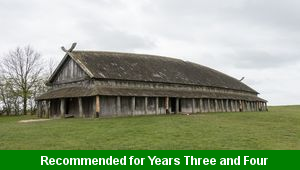Early Morning Work

You can utilise classroom time at the start of the school day to help the children develop and practise skills in all curriculum areas. You can set a number of activities that the children can complete independently freeing up your time to sort class administration and organisation tasks.
Build up a programme of classroom activities during the week so that the children know the routine for the early morning work and won’t trouble you with unnecessary queries.
Some of the activities can help the children develop spellings and number skills that will support them in future Maths and English lessons. The class can also spend time reviewing past work to make any needed corrections. You can also get the children to produce their own early morning challenges for the rest of the class to complete. The early morning is also an excellent opportunity for you to discuss progress with individual children whilst the rest of the class are engaged in independent work.
Spelling Practice
Use one of the early mornings during the week to get the children to practise learning some of the spelling patterns and rules that the class will be covering in future English lessons. Provide the class with a list of spellings that they can learn using a structured programme such as look, cover, write and check or by getting them to create word puzzles and games using the spellings for other members of the class to complete. You can also provide the children with a spelling rule that the class will be covering in future lessons. Challenge the class to make a list of spellings to match the selected rule. The children can then test each other using their created word lists to match the spelling rule. This activity can match with a homework task where the children can practise using some of the identified spellings in sentences to indicate their meaning. The class could also start building their own spelling dictionary listing words that they have learnt along with their definitions and examples of their use in sentences.
Number Calculations
The early morning period provides an excellent opportunity for the children to practise some of the addition, subtraction, multiplication and division calculations that they have been investigating in past lessons. You can set some general number problems that the children can try completing using some of the mental or standard written methods of calculation that they have been working on in maths lessons. You could also split the class into pairs and get the children to select a set of number problems for their partner to answer. The children can then swap and mark each other’s work avoiding the need for teacher support and interaction as the class are working independently. You could choose individual children to act as the teachers for the early morning period by getting them to demonstrate calculation methods that they used to solve a number problem for the class to check the method and resulting sums, products and quotients.
Work Corrections
One of the best early morning activities is to get the children to spend time reviewing and correcting their work that has been marked. Using their English work, the children can change any incorrect spellings and add missing punctuation marks. Get the class to identify common errors in their English work and practise writing new sentences without any of the identified errors. The class can also rework any number calculations that they have completed incorrectly. The children could check with a partner that they have reworked each calculation correctly. The children can also spend time checking and correcting work in other curriculum subjects to correct factual errors and any spelling, grammar or punctuation mistakes.
Group Discussions
Split the class into groups and provide them with some topics about current issues in the news or issues relevant to the children’s lives such as how to prevent global warming or should children wear school uniform. Tell the children to work together to make a list of arguments for and against the issue. The class can have a quick vote at the end of the lesson as to whether they are for or against te issue that they have been discussing.
Reading Books
The early morning provides an excellent opportunity to get the class to change their reading books. Use a ticket system whereby you can allow up to five children each day to visit the school library to select some new reading matter. You can also allocate one of the early morning sessions to get the children to share their current reading books with a partner. This will give the children an opportunity to work with different members of the class which will then increase their experience and understanding of different authors and texts. The children can also use this time to update any reading journals to keep a record and review of books that they have read in the past week.
Class Challenges
Any early morning work should allow the children to work independently so that you focus on any necessary administration tasks. You can get each child to create their own challenge or problem for the class to complete. The children can build challenges using some of the English. Maths and topic work that the class has covered in the previous week. For examples, the children could create a piece of text full of errors in spellings and punctuation for the class to proof read and check. Similarly the children could create some Maths problems related to the current classroom topic. The children could create number calculations with errors for the class to check and correct. Using some of the current topic work, the children could make a list of incorrect facts and concepts about a geography or history topic for the rest of the class to correct.
-

New Start
Explore how to prepare for and deal with some of the new events and special occasions that someone might experience in life
-

Viking Settlement
Explore how the Vikings settled and built communities in Britain in the past by referencing their culture and traditions
-

Labelling Bicycles
Develop and refine word processing skills when labelling and organising different parts and equipment that can be used when riding a bicycle
-

Garden Sculpture
Select and use different materials to mould and shape sculptures representing a range of artefacts that might be used in a family garden location
